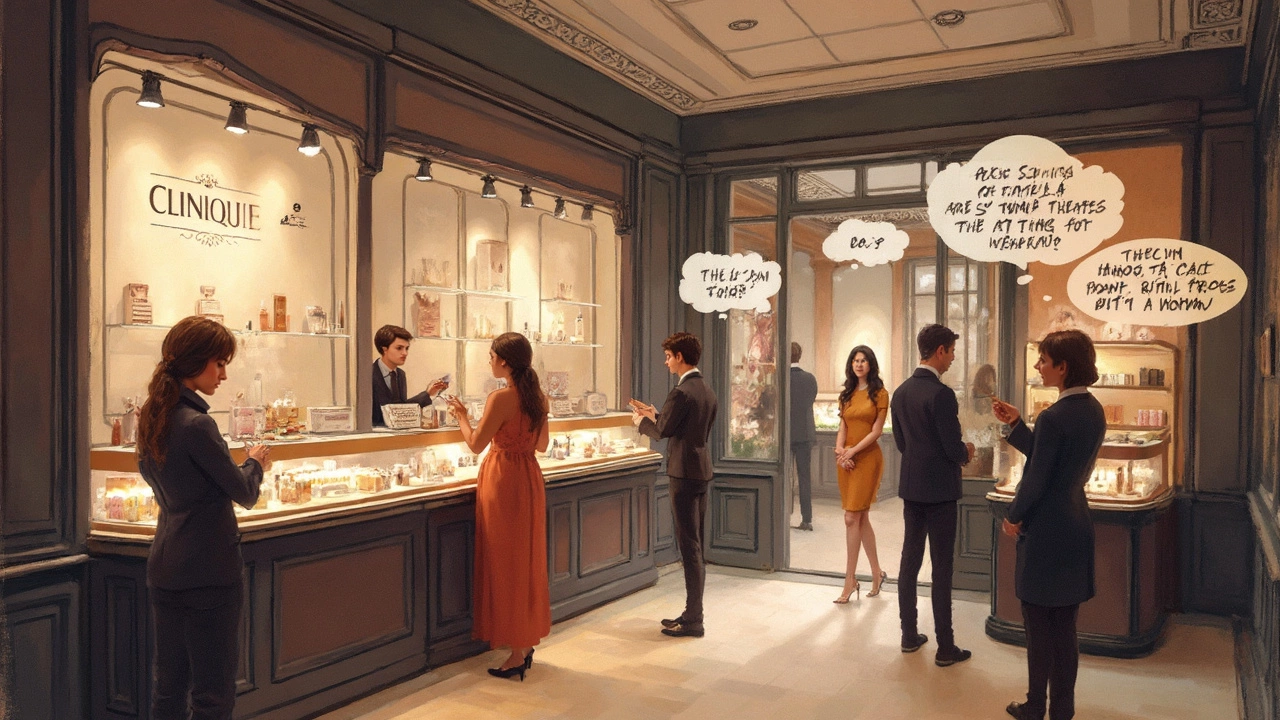Have you ever picked up a Clinique product, flipped it over, and wondered about its cruelty-free status? It's a question that echoes in the minds of many makeup lovers today. Animal testing is a hot topic, and rightfully so—who doesn't want their cosmetics to be kind to critters?
So, here's the scoop on Clinique. Known for its allergy-tested and fragrance-free formulas, Clinique has a loyal fan base. But does the brand's ethical backbone match up with its reputation? Let's break down what going cruelty-free really means, explore Clinique's testing policies, and help you decide if they pass the cruelty-free test.
- Understanding Cruelty-Free: What It Means
- Clinique's Animal Testing Policy
- Regulations and Loopholes
- Consumer Insights: Is Clinique Truly Cruelty-Free?
- Alternatives to Clinique
- Making Informed Choices
Understanding Cruelty-Free: What It Means
The term cruelty-free has become almost a buzzword in the beauty industry, but what does it really mean? At its core, cruelty-free means a product and its ingredients haven't been tested on animals. This commitment usually extends to the company’s suppliers and third-party testers.
Here's the kicker: in some places like the European Union, animal testing for cosmetics is banned. But in others, like China, it's a whole different ballgame. China requires animal testing on imported cosmetics, which can make it a tricky venture for brands wanting to remain cruelty-free.
While a product could be labeled as cruelty-free, it’s important to dig deeper. Brands might outsource animal testing to other companies or have different policies for different markets. And those are some sneaky loopholes that consumers need to be aware of.
Many consumers rely on trusted cruelty-free certifications to guide them. Organizations like Leaping Bunny and PETA provide certifications that ensure a brand stays true to the cruelty-free promise throughout their supply chain.
To know if your favorite products, such as Clinique, meet these standards, it’s useful to look for these logos or do a quick check on the brand’s website. By knowing what cruelty-free really means and staying informed, you can make better buying choices and support ethical practices in the beauty industry.
Clinique's Animal Testing Policy
Diving into the world of makeup ethics, especially with a big name like Clinique, can get pretty confusing. Clinique declares that they do not conduct animal testing on their products or ingredients, and they try to ensure their suppliers follow suit. But here's where things get a bit murky: their parent company, Estée Lauder, maintains a similar policy yet allows exceptions where required by law. That's where places like China come into the picture, requiring products to be tested on animals before they're sold.
So, Clinique's stance is a bit of a mixed bag. In countries without such regulations, they try to uphold a cruelty-free commitment, yet they can't entirely escape animal testing due to global market expansions.
For those of us trying to make ethical choices, it's super important to know these details. Understanding these exceptions can help consumers decide if Clinique's approach aligns with their values. It can feel a bit like a puzzle, but knowing is half the battle, right? So, every time you're swiping on some of that classic Clinique Black Honey lip, at least you're armed with the info to know where it stands.
Regulations and Loopholes
Navigating the landscape of animal testing regulations can feel like walking through a maze. Here's the deal: different regions have their own rules, and these can create some serious loopholes for brands like Clinique.
In the European Union, animal testing for cosmetics has been banned since 2013. Sounds great, right? But wait—there's more. Products sold in the EU must be cruelty-free, which seems simple until you look at what's happening in countries like China.
China, a massive market for any cosmetic brand, has traditionally required animal testing for certain imported products. However, there's good news on the horizon. As of 2021, China began loosening these rules for non-special use cosmetics, like shampoo and body wash, as long as specific safety certificates are provided. This change is pivotal but not a total game-changer since many brands, such as Clinique, still operate under policies that might involve animal testing in specific conditions to comply with varying international regulations.
Brands often say they’re cruelty-free because they don’t test on animals 'except where required by law.' This little phrase often means more than it seems at first glance. It's a way of engaging the lucrative global markets without fully committing to cruelty-free standards. Navigating these ‘requirements by law’ ends up being a legal tightrope walk companies must do to market everywhere while keeping with rules.
So, if you're hunting for genuine cruelty-free makeup, it's crucial to consider these loopholes. Understanding how brightly the term 'cruelty-free' is lit in marketing reveals the shadowy spots that still exist in regulatory practices. Keeping informed helps you avoid surprises with products you care about.

Consumer Insights: Is Clinique Truly Cruelty-Free?
So, you've heard all the buzz about Clinique cruelty-free status, and you're curious about where they really stand. Let's dive into what consumers are saying.
Clinique, unfortunately, isn't considered truly cruelty-free by some standards. Why? Well, it boils down to where their products are sold. In places like China, laws require imported cosmetics to undergo animal testing before hitting the shelves. Clinique, being sold there, indirectly supports these tests, which isn’t exactly aligning with a cruelty-free image.
Many consumers have found this quite disappointing. They often note that while Clinique doesn’t test on animals unless
Alternatives to Clinique
So, if you find out Clinique isn't quite as cruelty-free as you'd like for your makeup bag, don't worry, there are plenty of other fantastic brands out there that stand proud and feline-friendly.
First up, we've got Tarte Cosmetics. Known for their vibrant palettes and innovative formulas, Tarte prides itself on being 100% cruelty-free. Their products, like the iconic Shape Tape Concealer, are both high-quality and animal-friendly.
Then there's e.l.f. Cosmetics, a budget-friendly brand that doesn't skimp on quality or ethics. Not only are they cruelty-free, but they're also vegan. You can snag some awesome mascaras and blushes without guilt-tripping over your conscience.
- Anastasia Beverly Hills: Famous for their eyebrow products and stunning eyeshadows, Anastasia Beverly Hills is another brand committed to being cruelty-free.
- Fenty Beauty: If you're after something a bit more lavish, Rihanna's Fenty Beauty might be your go-to. The whole range is cruelty-free, showcasing a wide spectrum of shades for inclusivity.
- Milk Makeup: Known for their vegan formulas and cool-girl aesthetic, Milk Makeup offers everything from hydrating primers to colorful highlighters without compromising on cruelty-free standards.
Makeup shopping can feel like a moral maze, but the truth is, brands are increasingly transparent about ethical standards. Always look for certification labels from organizations like Leaping Bunny or PETA to verify that what you buy is genuinely cruelty-free. With these tips, switching from Clinique to a more animal-friendly option is a whole lot easier.
Making Informed Choices
In the world of beauty products, it's not just about what looks good but also about making choices that align with your values. Understanding Clinique’s cruelty-free status is a step towards more conscious consumerism.
If you're committed to cruelty-free products, start by checking for certifications from recognized organizations like Leaping Bunny or PETA. Unfortunately, Clinique isn't listed under these, which raises some red flags for animal lovers.
Keeping informed goes beyond certifications. Consider investigating Clinique's parent company, Estee Lauder. They have made strides in certain areas but sell in China where animal testing can sometimes be required by law. It’s like a gray area—feels a bit like a mystery wrapped in bureaucracy.
No worries if you're feeling unsure about sticking with Clinique. There are plenty of alternatives with less ambiguity. Brands like NYX, e.l.f. Cosmetics, and Too Faced offer impressive lines that are certified cruelty-free. It's not just about saying 'no' to animal testing but a 'yes' to brands that take a clear stand.
Here’s a simple action plan to ensure you're on the cruelty-free path:
- Look for cruelty-free certifications on product packaging or the brand’s website.
- Do a quick online check for a brand's testing policies, focusing on the regions they sell in.
- Consider reaching out to brands directly with questions—many companies are transparent and open to dialogue.
- Explore and read reviews about alternatives you haven’t tried yet. The cruelty-free beauty world is vast and growing.
Remember, staying informed is power. Whether you're sticking with Clinique or exploring other options, knowledge is your best tool in making ethical and compassionate choices.

